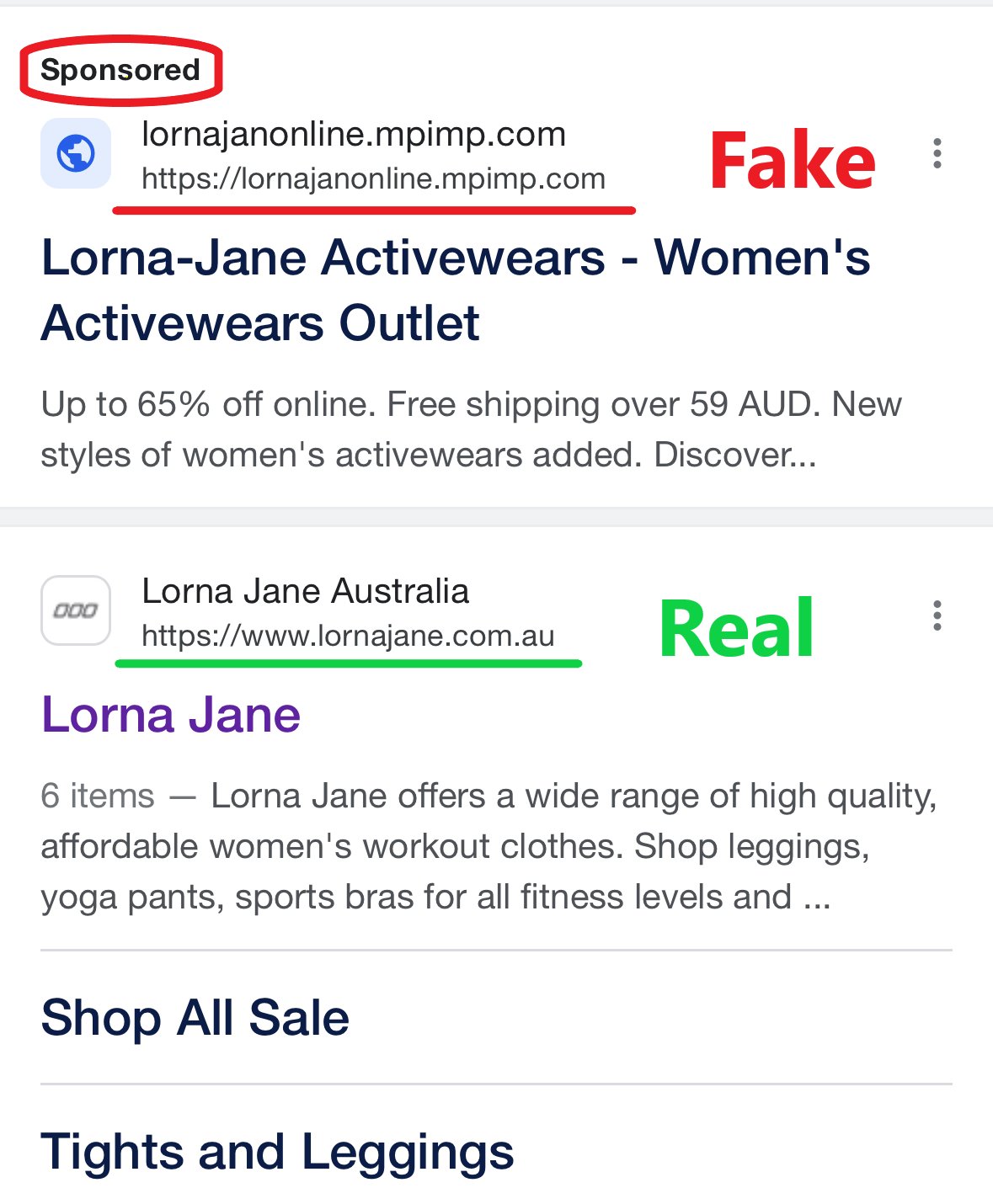Australia’s National Anti-Scam Centre (NASC), through its initiative Scamwatch, has drawn attention to a concerning trend of online scams that cost the nation’s residents nearly $74 million in the past year.
This elaborate scam primarily operates through online search results, frequently displaying sponsored advertisements. These sponsored ads, financed by scammers, predominantly serve the interests of fraudsters.
Fraudulent Sponsored Pages on Search Results

Sponsored pages, sponsored advertisements, and other search results were found by Scamwatch to be duping users looking for a specific brand or store online. Online shopping creates the scope for entering one’s bank details for making payments.
Sponsored ads often appear first in search engines be it Google, Bing, Yahoo, or others leaving their presence everywhere while creating a sense of them being paid content, or legitimate businesses.

However, this was found to be a part of the larger cybercrime of malvertising which has left most of the search engines corrupted with fraudulent webpages.
Preventing Scams from Sponsored Ads: Key Tips to Remember
Scamwatch works across government and private sectors collecting reports about frauds to create awareness among people.
In the wake of the increase in cyber attacks leading to data leaks on the dark web, several cybercriminals were found using the compromised data to dupe people.
Scamwatch outlined some points including the following to help spot sponsored ad scams –
- As shown in the image above, fraudulent websites on search results will have Sponsored mentioned on top of them.
- These sponsored pages will often show on search results where they catch the user’s eye. Avoid clicking on them.
- Spoofed websites will appear with the link to it in search engines. The website links will have additional words or characters that will resemble a well-known brand. For example – the genuine women’s activewear website URL – https://www.lornajane.com/ will be duplicated with a link such as – https://lornajanonline.mpimp.com
- Often the logo besides the website URL will not contain the company graphics on them.
- The content, everywhere including the URL, web description, website pages, product description, payment pages, etc., will lack proper grammar and details.
- Scammers also use technology including deepfake to create videos impersonating famous celebrities and endorsing products. Pictures of famous personalities are also used in fraudulent advertisements and brochures.
- They create a number of good reviews posted with different names. Genuine product review pages often also feature bad reviews.
- Sponsored ads that lead to a website may show pop-ups or alerts with a warning asking users to update their systems, delete a detected virus, purchase an antivirus, spin the wheel for a free gift, and so on.
- Sponsored ads open pages that sell products for a very low price.
- The payment method may not work on all platforms. There might be limitations in terms of paying only through a card or Bitcoin because scammers look for specific details to be misused later.
- Such pages often have models or hosts speaking with the audience in a superficial tone clearly marking them as amateur actors paid to sound like they gained perks and prizes with no effort.
One of the things users can do to avoid falling prey to malvertising and sponsored pages is not to open them. No known company creates prizes that are earned randomly or are not advertised publicly on various platforms they own.
Not clicking on any link or website that shows under sponsored content is a step forward to keep suspicious pages, malware, and scams away.
Media Disclaimer: This report is based on internal and external research obtained through various means. The information provided is for reference purposes only, and users bear full responsibility for their reliance on it. The Cyber Express assumes no liability for the accuracy or consequences of using this information.
